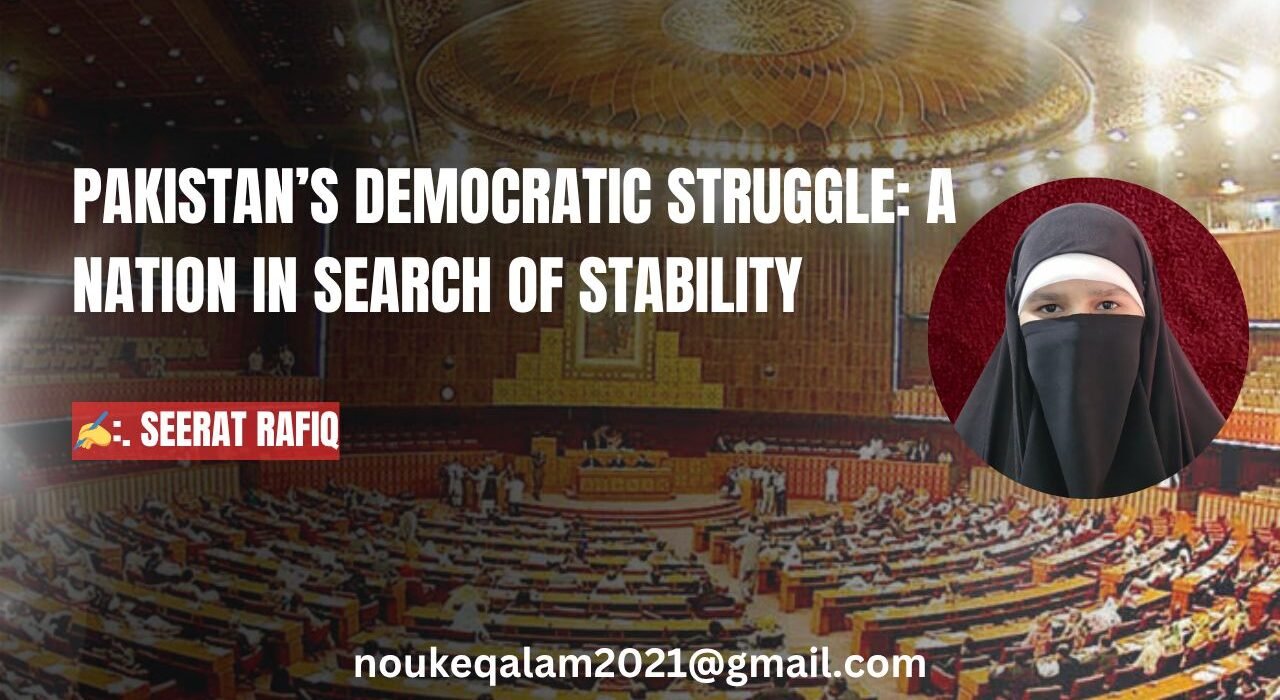Pakistan was created on 14th August 1947 as a result of the partition of British India. The founder, Muhammad Ali Jinnah, strongly believed in the Two-Nation Theory, which asserted that Hindus and Muslims were two distinct nations.
Unfortunately, the partition was followed by massive communal violence, leading to the death and displacement of thousands. Just four years after independence, in 1951, Pakistan’s first Prime Minister, Liaquat Ali Khan, was assassinated—marking the beginning of a long period of political instability.
Since then, Pakistan’s journey has been marred by military interventions, political turmoil, and repeated constitutional breakdowns. Despite these challenges, the country has continued to experiment with democracy. It is rightly said that in Pakistan, democracy and military rule have played a constant game of hide and seek.
Political Timeline of Pakistan
1947–1958: Civilian democratic rule with multiple elected Prime Ministers, but internal instability and power struggles weakened the system.
1958–1969: General Ayub Khan seized power in a military coup and imposed martial law, ruling as both President and military chief.
1969–1971: General Yahya Khan succeeded Ayub, leading the country through a deep national crisis.
1971–1977: Zulfikar Ali Bhutto led Pakistan’s first relatively stable civilian government, introducing constitutional reforms after the 1971 military defeat.
1977–1988: General Zia-ul-Haq overthrew Bhutto’s government and ruled under a military dictatorship until his death in a plane crash.
1988–1999: Return to electoral democracy with Benazir Bhutto and Nawaz Sharif alternating as Prime Ministers. Governance during this period was marred by corruption, political dismissals, and civil–military friction.
1999–2008: General Pervez Musharraf staged a coup and ruled Pakistan under a semi-democratic regime, maintaining strong military control.
2008–Present: Civilian governments have returned, but military influence continues behind the scenes, limiting the full development of democratic institutions.
Reasons for the Failure of Democracy in Pakistan
- Social Dominance of Elites: The military, clergy, and landed aristocracy dominate the power structure, resisting reforms that threaten their authority.
- Corruption and Misgovernance: Endemic political corruption has eroded public trust and invited military intervention.
- India-Pakistan Conflict: Persistent hostility with India strengthens the military’s hold on power, as it claims civilians are too weak to handle national security.
- External Support for Military Rule: Strategic interests, especially during the Cold War and War on Terror, led countries like the USA to support military regimes.
- Post-9/11 War on Terror: The military and ISI gained international credibility and funding as central players in counter-terrorism, sidelining civilian leadership.
- Doctrine of Necessity: The judiciary has often legitimized military coups under the so-called “Doctrine of Necessity,” undermining democratic norms.
Suggestions for Strengthening Democracy in Pakistan
- Strengthen civilian institutions and limit military interference.
- Conduct free, fair, and transparent elections.
- Promote judicial independence and uphold the rule of law.
- Empower local governments through decentralization.
- Implement anti-corruption reforms to ensure accountability.
- Protect media freedom to serve as a democratic watchdog.
- Educate citizens about democratic values and civic responsibility.
- Take strong action against terrorism and extremism.
- Maintain balance among the executive, legislature, judiciary, and military.
- Trust the democratic process as the only path to long-term stability.
In my opinion, the most important lesson for Pakistan lies in observing how democracy has evolved in its neighbour, India. Despite its diversity and challenges, India has preserved the separation of powers and ensured smooth transitions of power through regular elections. The constitution is respected across institutions, which has helped sustain its democratic framework.
Pakistan must not only reform its governmental structure but also ensure that the military, judiciary, media, and civil society remain within their constitutional limits. Only then can the country advance in areas such as education, economy, and international diplomacy.
I am deeply grateful to my Political Science lecturer, Qazi Syed Sajad Sir, for inspiring and guiding me in understanding and writing about such complex socio-political issues.
Writer is Seerat Rafiq, Class 12th
Govt. Hr. Sec. School Delina, Baramulla






